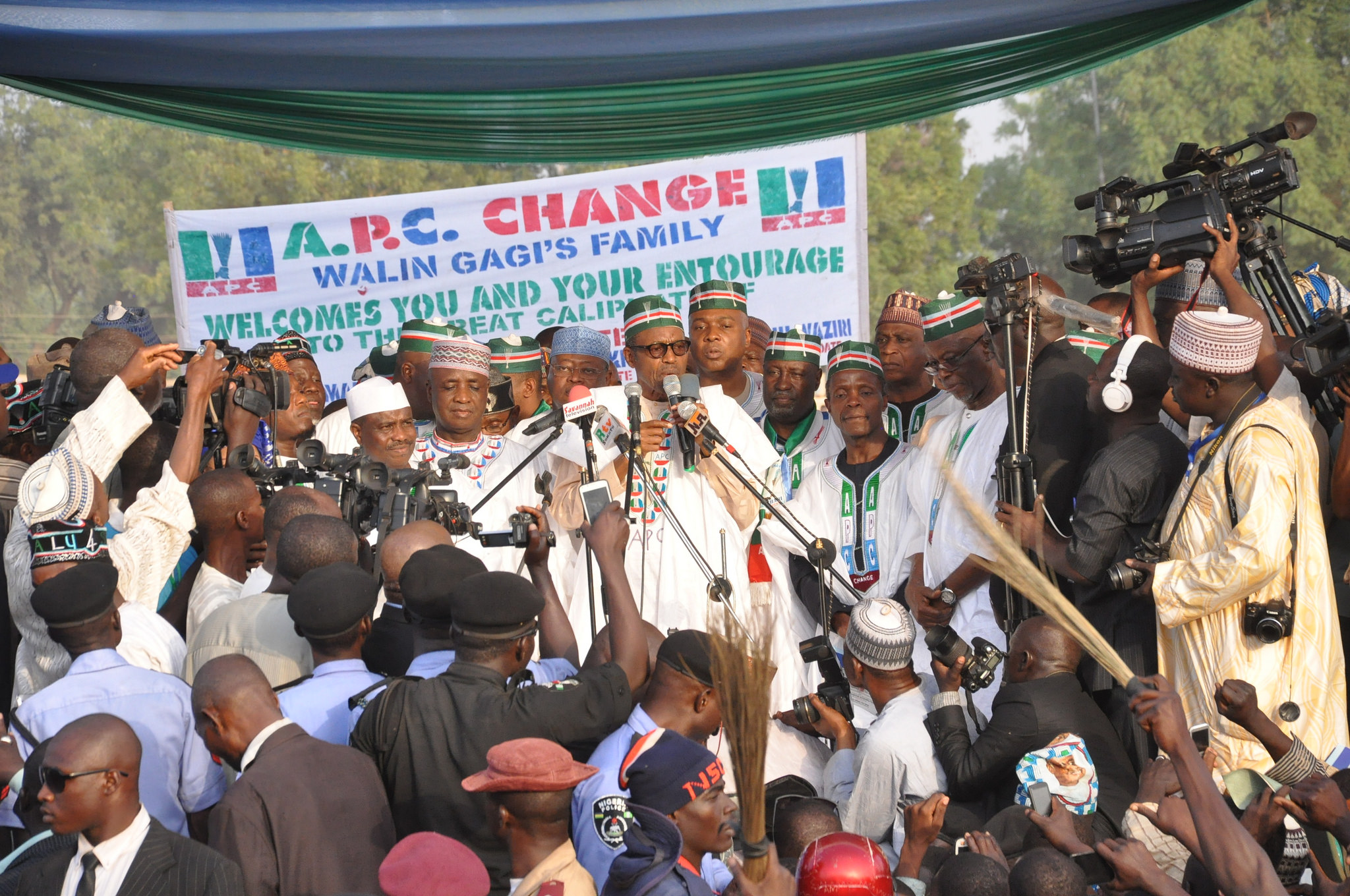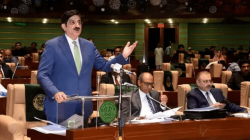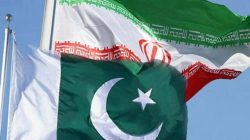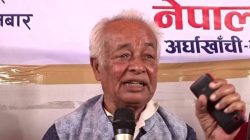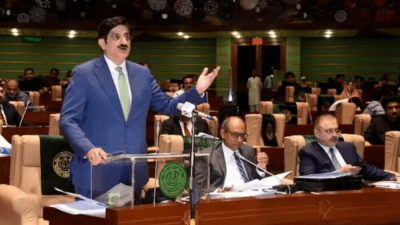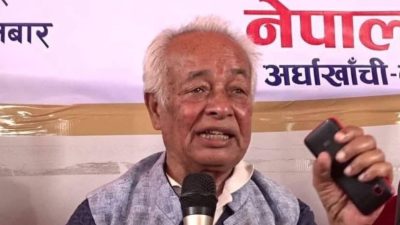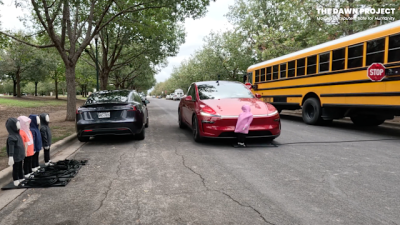To build a truly successful democracy in Nigeria, the role of the voter cannot be overstated. While we often attribute the failure of democratic governance to issues such as corruption, poor leadership, structural imbalances, an unsuitable constitution, and disregard for the rule of law, these are symptoms rather than the root cause. A closer examination suggests that the deeper issue lies in the quality and disposition of the electorate itself.
Rethinking Nigeria’s democracy requires diagnosing the key issues which have always fraught and undermined the ability of the voter, whose role is crucial in a representative democracy, to make informed choices. These key issues are, namely, corruption, disregard for the rule of law, leadership deficit, structural imbalance, the role of INEC as an unbiased electoral arbiter and the constitution.
Corruption is undeniably a major problem. However, our failure to meaningfully reduce it suggests a deeper enabler. The institutions designed to combat corruption are often compromised, having been captured by political elites who rose through corrupt systems. As a result, anti-corruption efforts are frequently politicised, serving as tools for silencing dissent rather than promoting justice.
Disregard for the rule of raw. While this is a genuine concern, the impunity we witness is facilitated by weakened institutions. Courts, law enforcement, and oversight bodies often lack the independence to check abuses of power. This creates a vicious cycle where accountability is undermined at every level.
Leadership deficit. Nigeria is not short on capable leaders—our private sector, arts, sciences, and diaspora communities are filled with exceptional individuals. The real problem is that our political system does not facilitate their emergence. Structural barriers, including the monetisation of politics and voter manipulation, prevent such leaders from gaining power in meaningful numbers.
Structural Imbalances. While restructuring, such as devolving more power to subnational units, could promote better governance, even our current centralised system could yield far better results if managed by the right people. Decentralisation without addressing underlying power dynamics could simply localise authoritarianism, allowing current elites to entrench themselves further at regional levels.
The Independent National Electoral Commission is an unbiased and credible electoral arbiter.
INEC, without doubt, has a great responsibility to conduct and deliver a credible election reflective of the wishes of the people. The enabling laws are rich, even if not perfect. However, a cursory look at the political environment and all instruments and levers of government to support INEC in the delivery of the assignment puts INEC in a difficult situation and, in the end, becomes a victim itself. Politicians go to all lengths to manipulate the electoral process to their advantage, using intimidation, violence, coercion, inducement and, in fact, state apparatus and putting INEC officials and voters in a difficult situation.
The Constitution. Although Nigeria’s 1999 Constitution is widely criticised for its military origins and imperfections, good governance is still possible within its framework. The problem lies more with the operators of the Constitution than the document itself. With the right people in office, even constitutional reforms become possible.
The central problem. The foundation of any representative democracy is its electorate. For Nigeria’s democracy to function effectively, most voters must possess the following traits:
Accurate, factual understanding of issues; Basic education that enables understanding of governance, rights, and civic duties; Exposure and enlightenment beyond formal education; The ability to make independent voting decisions; And a level of economic security that prevents vote-buying and coercion.
Currently, a large percentage—perhaps 70 per cent to 80 per cent—of the electorate lacks several of these characteristics, particularly the last three. Many voters are influenced by local power brokers through financial inducements, historical loyalty, or outright coercion. Consequently, candidates who run on clear manifestos and ideology struggle to communicate with or gain the support of the majority. This allows unscrupulous politicians to capture votes in blocs, undermining democratic ideals.
Since democracy is a numbers game, isolated instances of credible elections, such as parts of Lagos during the 2023 presidential elections, are not enough. In areas where voter quality aligns more closely with the five traits above, outcomes tend to be more reflective of the popular will. Unfortunately, these remain exceptions rather than the rule.
Given the challenges posed by an under-informed and economically vulnerable electorate, two radical yet constitutionally achievable reforms may be necessary.
Firstly, redefine voter eligibility beyond age. Simply reaching the age of 18 should not be the sole criterion for voting eligibility. While this may appear controversial, history shows that democracies have long linked voting rights with capability. For example, the UK only granted universal suffrage in 1969 after centuries of progressive expansion based on property, education, and gender. Nigeria must similarly recognise that a voter’s capacity to understand and participate in the democratic process is as important as their age.
Close to 100 million voters on the voter register have not translated to good governance; evaluating and creating an enabled voters list can surely help.
Secondly, through constitutional reforms, the country’s constitution can be amended to raise the minimum educational qualification for political office. Nigeria’s foundational institutions—banks, hospitals, research organisations—would never be led by individuals with only a secondary school certificate. Yet we allow such minimal qualifications for those who govern the nation. Raising this standard would immediately improve the quality of candidates. These two reforms, if adopted, could bring about transformative changes by way of higher-quality candidates, ideologically driven political parties and less desperation on the part of the political class. Desperation is most often a precursor of violence.
The vibrancy which voter sophistication can bring to the political process would be adjudged by candidates seeking political office being forced into appealing to a more informed and discerning electorate. Thus, reducing the influence of money and thuggery in elections. Political parties are becoming amenable to a political philosophy and ideology, thereby incentivising them to articulate clear policies and philosophies to attract credible voters, rather than serve merely as platforms for power-seeking individuals. It also fosters a genuine realisation on the part of the citizenry that only merit can secure electoral victory. This, in the long run, will help to de-escalate the high-stakes, do-or-die nature of our politics.
For the integrity of our elections, nobody can wish away a strong INEC. However, a more discerning electorate would weaken the incentive for politicians to rig elections or compromise INEC. With less pressure and manipulation, the commission can operate more independently and effectively. Another tangible benefit of electoral reforms is improved accountability. With improved accountability, necessary in-built mechanisms for stronger institutions emerge.
Politicians would now be accountable to voters with the awareness and capacity to demand better governance and initiate legal recourse when necessary, including recalls. With the right people in office, the long-term effect would be the strengthening of public institutions and democratic values.
What possible options can be included in voter eligibility?
Civic literacy certification. This can be in the form of a requirement for eligible voters to pass a basic civic literacy test covering Nigeria’s Constitution, government structure, rights and responsibilities of citizens, and electoral processes. This is relevant because many Nigerian voters do not understand the implications of their votes or the roles of those they elect. A civic test (administered digitally or locally by INEC) would ensure voters have at least a minimum understanding of the democratic process. Incidentally, there are similar cases in some US states for restoring voting rights in some instances.
While there is a strong consciousness of manipulation that can happen in the organisation of such training in the country, measures can be put in place to minimise such. We can look at the case of the Joint Admission Matriculation Board digitising their exams, tackling challenges that come with it and getting progressively improved results.
Proof of taxpayer status or economic self-sufficiency. This can be a requirement for voters to present evidence of tax registration or income activity (e.g., business registration, formal employment, pension documentation). This can help because voters with a financial stake in the country tend to vote more responsibly. It could also limit vote-buying since economically dependent populations are more easily influenced. However, this must be carefully designed to avoid excluding vulnerable citizens unfairly, perhaps, especially by allowing a framework that allows informal sector proof of earnings.
Raised the minimum voting age to 21. Another option can be increasing the voting age from 18 to 21 to ensure greater emotional and mental maturity, this is not to trivialise the ability of our younger people. However, where many 17-year-olds are just leaving secondary school and may not yet possess the exposure, independence, or critical thinking required to make informed political choices, further exposure to higher education (formal or otherwise) and larger society integration, with social and developmental realities that come with higher age, can surely help. In fact, countries like Singapore and Malaysia still maintain a higher voting age than 18 years till today, and the UK maintained a voting age of 21 years until 1969.
These recommendations, especially on voter qualification, will likely spark debates on human rights and potential disenfranchisement. However, the danger of uninformed and manipulated participation in democracy may be even more severe than limited participation. We must confront this uncomfortable truth: the root flaw in Nigeria’s democracy is not merely corruption or structure—it is the widespread inability of the electorate to make independent, informed choices.
If this fundamental issue is not addressed, the cycle of misgovernance will persist. These ideas are open to debate, and alternative views are welcome, but one thing is clear: putting the right people in power must start with reforming the system that empowers them—beginning with the voter.
This is my opinion on our situation and a possible option on the way out, Please feel free to criticise and suggest a better option or enhancement to the suggestion.
Suleman, a technology expert and an avid follower of Nigerian politics, writes from Ibadan
Provided by SyndiGate Media Inc. (
Syndigate.info
).

